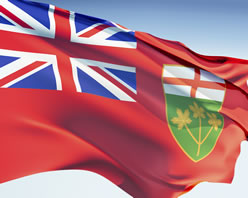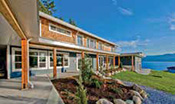Government addiction treatment options in London, Ontario
Dylan in London, Ontario is looking for government-funded treatment. He didn’t give us too many details about his substance use issue, so we offered some general, all-encompassing treatment options that met the needs we were aware of. The first thing Dylan needs to do is sober up off the substances he is using. STEP ONE Depending on the substance (e.g. meth, cocaine, speed, other party drugs) you can go here. If you are withdrawal from moderate to severe dependence on Opiates (e.g. heroin, morphine, Fentanyl, oxycodone), Alcohol, or Benzodiazepines you will likely need to go to a medical detox unit (see further down under “Toronto Options”) Alexandra Hospital Centre of Hope Withdrawal Management Centre 281 Wellington Street London, ON N6B 2L4 Phone: (519) 432-7241 Fax: (519) 672-4025 Website: http://www.drugandalcoholhelpline.ca/Directory/Program/6095 Note: 18 beds (8acute, 10 non-acute) for people 16+. Staff are not medically trained so clients must be sufficiently stable prior to admission. Contact this program to determine suitability. Centre for Addiction and Mental Health (CAMH) 3rd floor – 60 White Squirrel Way Toronto, ON M4G 3Z1 Phone: (416) 535-8501 ext. 36071 Toll-Free: 1(800) 463-2338 ext. 6616 Website: CAMH Medical Withdrawal Unit Note: an 18-bed medical detox. All clients are monitored by medically trained staff. Clients can self-refer between 8am -2pm Monday – Friday, no admissions on weekends or public holidays. Humber River Regional Hospital Bridgewood Chemical Dependency Program Elective Inpatient Withdrawal Program 2175 Keele Street Toronto, ON M6M 3Z4 Phone:(416) 658-2029 Website: Mental Health and Addiction Services Note: all clients are monitored by medically trained staff. There are 11 beds in the psychiatric care unit that are for acute withdrawal. If the above options cannot help you, here is a link to all available detox units in Ontario: http://www.canadadrugrehab.ca/ON/Ontario-Medical-Detox-Alcohol-Drug-Rehab-Programs.html#medical STEP TWO Once you are sober you can make an appointment with this office to assist you with the paperwork and referral into a treatment centre: Addiction Services of Thames Valley (ADSTV) 260-200 Queens Avenue London, ON N6A 1J3 Phone: (519) 673-3242 ext.222 E-Mail: intake@adstv.on.ca Note: assessment and outpatient counselling for youth and adults. Also has a program for family members, significant others, pregnant women and women with children up to 6 months of age. French available. STEP THREE It is helpful if you find a few programs you would like to get into and contact them prior to your appointment with the local mental health and addiction office (e.g. Addiction Services of Thames Valley in this situation). It shows initiative on your part. You will want to use these questions to help you figure out whether or not the program is meets your needs. Here is where you can research potential residential programs: http://www.canadadrugrehab.ca/ON/Ontario-Residential-Alcohol-Drug-Rehab-Programs.html#adult Here are the local options for London: Westover Treatment Centre P.O. Box 8 2 Victoria Street South Thamesville, ON N0P 2K0 Phone: (519) 692-5110 Toll-Free: 1(800) 721-3232 Fax: (519) 692-3138 E-Mail: Use form on the “contact” page Website: www.westover-fdn.org Note: Has 22 beds funded by the Ministry of Health in our Substance Dependence Program and six beds in our Family Program. Also has 2 fee-for-service beds for those who want to get in faster. London Adult Support Recovery – Secular Mission Services of London Quintin Warner House 477 Queens Avenue London, ON N6B 1Y3 Phone: (519) 434-8041 Fax: (519) 434-1669 E-Mail: qwhintake@missionservices.ca Website: www.missionservices.ca Note: a 16 bed 16 -24 week residential program for males only 18+. Accepts referrals from the courts and correctional facilities. Clients must be sober between 7-14days. London – Adult Support Recovery – Faith-Based Teen Challenge London 9340 Sharon Road London, ON N6P 1R6 Phone: (519) 652-0777 Toll-Free: 1(888) 417-7777 E-Mail: ernie.tell@teenchallenge.ca Website: www.tclondon.ca Note: 1 year faith-based program for 52 men 18+. Program is $100 application fee with a fee of approx. $1000 per year. Clients must be sober 14days prior to admission. You can also call THE ONTARIO DRUG AND ALCOHOL HELPLINE (OHIP’s public drug and...
Individual and Family Treatment for Alcohol Addiction
Mary* called us recently to inquire about residential alcohol treatment for her husband, David*, and family support (specifically boundaries and enabling) counselling for herself in Ontario. Our time with Mary tackled two issues. We provided resources for David – assessment, detox, residential, Ontario Health Insurance, and private treatment. We also went over resources for Many and explained how to access these services as an affected loved one. Mary was dealing with intense feelings of suffocation because she could not go anywhere or do anything without David falling apart and getting drunk at home. The effects of David’s depression, his first relapse, and his heightened neediness when he is off work (David does seasonal work) all have taken a toll on Mary. These are the resources and links we provided Mary: This link will provide you with useful information for substance-affected family members and friends: http://www.sunshinecoasthealthcentre.ca/family-addiction-help.html BOUNDARIES This is a list of printed resources on boundaries for families affected by addiction: Addictive Relationships: Reclaiming Your Boundaries (1989) Joy Miller Better Boundaries: Owning and Treasuring Your Life (1997) Jan Black, Greg Enns Boundaries – Where You End And I Begin: How To Recognize And Set Healthy Boundaries (1994) Anne Katherine Boundaries and Relationships: Knowing, Protecting and Enjoying the Self (1993) Charles Whitfield Boundaries in Marriage (1999) Henry Cloud and John Townsend Boundaries in Marriage (1999) Henry Cloud and John Townsend Boundaries in Marriage – Participant’s Guide (2002) Henry Cloud and John Townsend Boundaries: When to say Yes, When to Say No, To Take Control of Your Life (1992) Henry Cloud and John Townsend Where to Draw the Line: How to Set Healthy Boundaries Every Day (2000) Here are some of, CDR operator, Sunshine Coast Health Center’s blogs on boundaries and family support: 1. When Addiction is close to home: A Toolkit for Families 2. Emotional Hangovers LOCAL OPTIONS – ASSESSMENT OFFICE Mary and David live near Norwood. These were the closest offices they could to get David’s assessment and options for Mary: Four Counties Addiction Services Team (Four CAST) 2nd floor 1011 Elgin St. W Cobourg, ON K9A 4K9 Phone: (905) 377-9111 Toll-Free: 1(800) 461-1909 Fax: (905) 377-9392 E-Mail: fourcast@fourcast.ca Website: www.fourcast.ca Lakeshore Counselling 975 Elgin Street Cobourg, ON K9A 4K9 Phone: (905) 377-9111 Toll-Free: 1(800) 461-1909 E-Mail: fourcast@cogeco.net Campbellford Memorial Hospital 246-146 Oliver Road Campbellford, ON K0L 1L0 Phone: (705) 653-3352 Toll-free: 1(800) 461-1909 E-Mail: fourcast@cogeco.net Four Counties provides assessments and outpatient counselling for youth and adults, including pregnant women and mothers with children 6 months of age or younger. Open Thursday and Friday only. DETOX These are the detox services available in your area if David needs support during withdrawal (which is quite common for alcoholism): Cobourg Withdrawal Management Services (Detox) Four Counties Addiction Services Team (Four CAST) 2nd floor 1011 Elgin St. W Cobourg, ON K9A 4K9 Phone: (905) 377-9111 Toll-Free: 1(800) 461-1909 Fax: (905) 377-9392 E-Mail: fourcast@fourcast.ca Website: www.fourcast.ca Home detox is provided with support and monitoring offered by a withdrawal management professional. Clients are assisted with withdrawal symptoms on an outpatient basis (in-office or by phone). PRIVATE RESIDENTIAL TREATMENT This is one example of programs we provided Mary that we believed would be optimal for David: Life Science Addiction Treatment Center 114 Rue Kimpton Rigaud, QC J0P 1P0 Phone: (450) 451-9995 Fax: (450) 451-9995 Website: www.life-science.ca E-Mail: info@life-science.ca They charge $8,000 for 30 days (extensions up to 90 days can happen). Life Science uses evidence-based and best practices models. This facility works with the client to design a treatment program that works best for him or her. Life Science will help with implementing proper coping strategies in regards to stress. Treatment takes place in a home-like environment located in a rural area of Quebec. It is also...
Ontario Residential Treatment Options Explained
This is a brief explanation of the differences between the three treatment types. There will be a mix of government, private and charitable options. Private You can choose any facility you wish. The average cost of private treatment is roughly $5000 – $15000 for a 30-day program. The benefit of paying privately is that clients are typically admitted right away. Some facilities are equipped to do detox on site, while others will require you to detox/withdraw prior to admittance. Benefits: more 1-on-1 counselling, the ratio to staff to client is higher (i.e. unique clients needs are given more attention), and there is usually an aftercare and family program. Charitable You can also choose to get treatment from a charitable place anywhere is Canada. Typically charitable options are programs run by organizations like Salvation Army, United Way, and church groups. These groups do fundraising to help offset the costs of treatment. Typically clients have to be anywhere from 5 to 10 days sober. These programs usually cost under $5000/30 days of treatment (anywhere from $400 – $1240). There are often wait lists for these program, which can vary from 1 week to 1 year to get admitted. Benefits: Cheaper cost for long-term programs (30-180days and sometimes 1 year). Government Most government treatment programs are free. Generally, you can only go to government treatment in the province you have valid health care for. Although it is covered (not including prescriptions), the wait lists are long and there is a certain procedure you must do for getting into treatment. First, a person must have an assessment completed (usually by a drug and alcohol counselor at the local Mental Health and Addictions office). Once the assessment has been done, the counsellor can start to refer that person into provincially-funded or -sponsored treatment programs. At this point, he or she would wait until their intake date comes up. In the meantime, he or she can go to detox, attend local AA/NA meetings, and/or receive outpatient counselling (more intensive than meetings, less than rehab). Government treatment programs are typically 18-30 days, do not usually have weekly 1-on-1 counselling, and do not have aftercare or family programs. Because so many people are trying to access treatment services, government programs need to move people through treatment quickly so everyone can receive some basic tools for a sober and clean life. When researching treatment options, here is a set of questions we recommend everyone ask. These questions will you figure out which treatment center and its programs are going to be the right fit. PROGRAM TYPES EXPLAINED Here are links and/or descriptions to different treatment program modalities. 12-step programming Holistic Treats the person as a whole using 12-step fundamentals as well as current evidence therapies, such as CBT (cognitive behavioural therapy), REBT (rational emotive behaviour therapy), Mindfulness, Narrative therapy, etc. Evidence-based Uses evidence-based therapies only, such as CBT, BPS+S (biopsychosocial + spiritual), EMDR, REBT, and/or any therapies that have been proven to have success in treating addiction through various research studies. Christian/Spiritual Faith-based programs that help clients find salvation in the Lord. They also, sometimes, use 12-steps or their own form of programming. GOVERNMENT TREATMENT We recommended all Ontario residents looking for addiction treatment keep the Ontario Drug and Alcohol helpline number handy (1-800-565-8603). This is a 24-hour hotline for Ontario Health Insurance. This is how residents can go about getting government treatment for themselves or loved ones. We recommend, if you do call, asking for the following four pieces of information: Initial assessment facilities David cannot get government treatment without being referred. In order to get a referral to a public program...



